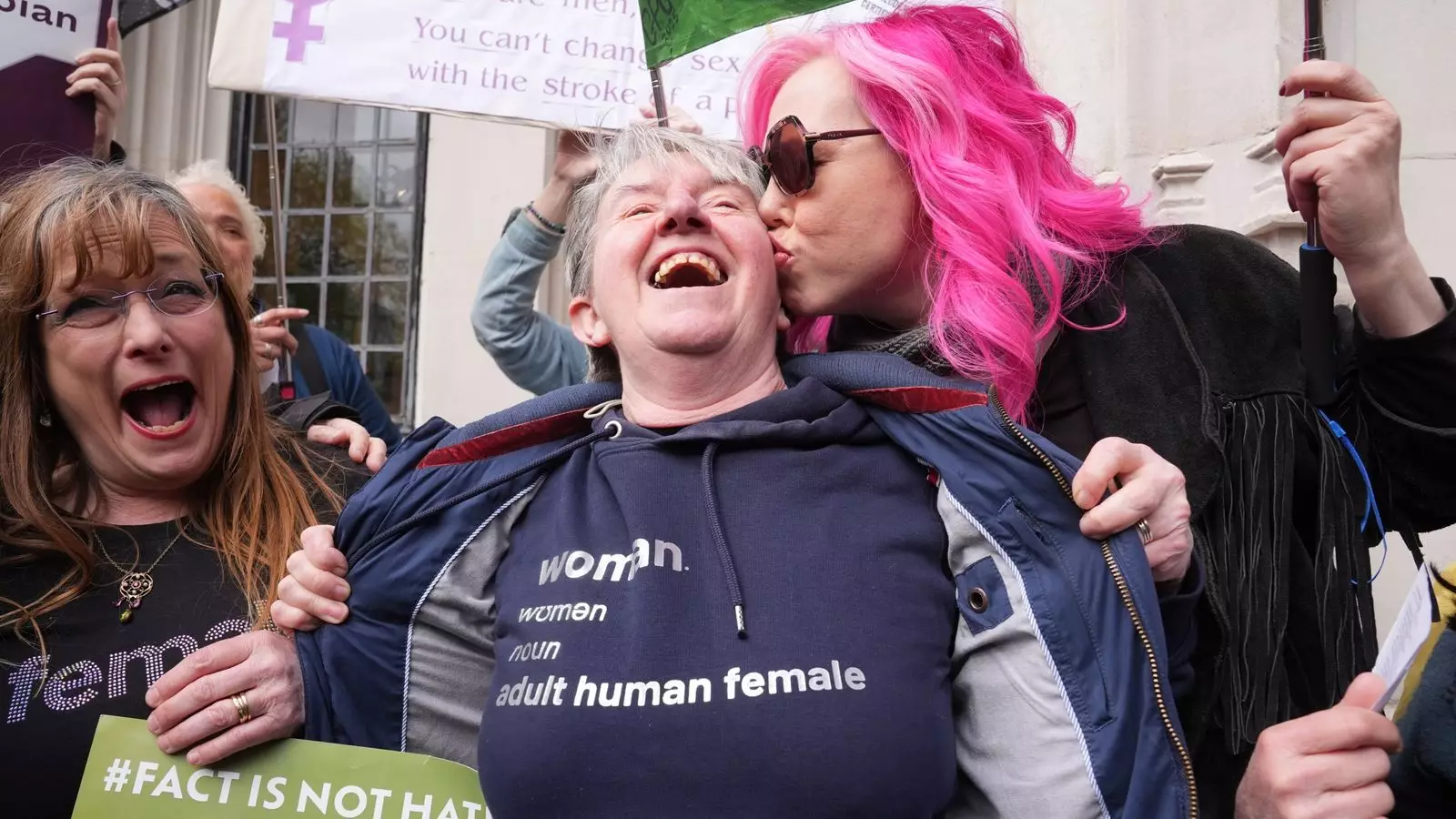The issue of gender identity has spiraled into a complex multifaceted debate, tearing at the fabric of societal norms and legal frameworks. For years, we have witnessed a toxic interplay between deep-seated emotions and ironclad legal definitions, a friction that has sparked turmoil and division in the UK. Recently, a landmark judicial ruling brought some clarity, but at what cost? As the legal dust settles, it becomes increasingly evident that this ruling isn’t merely a point of law but an echoing statement about societal values and identities. Five judges affirmatively declared that the legal definition of a woman is intrinsically linked to biological sex, leaving behind a cacophony of disappointed voices calling for more inclusive recognition of gender identities.
Impact on Transgender Rights and Societal Norms
This decision is a watershed moment, sending shockwaves through communities that have fought long and hard for recognition and equality. The judges upheld that individuals holding gender recognition certificates (GRCs) do not embody the legal status of women, which invites a broader conversation about the implications of such definitions. This isn’t just a legal reconfiguration; it’s a direct challenge to the identities of countless trans individuals who live authentically, striving for society to see them for who they truly are. An overwhelming sense of defeat hangs over many in the trans community, with cries of “attack” on their identity echoing from the courts to the streets.
Supporters of the judgment cheer about newfound clarity regarding gender dynamics in single-sex spaces, a notion touted by women’s rights advocates as essential in protecting female boundaries amidst a rapidly evolving understanding of gender. Yet, isn’t it ironic that this so-called clarity comes at the expense of dehumanizing trans identities? It’s a precarious balancing act, one where the scales of justice seem to favor some while disregarding the very existence of others.
The Political Landscape and Its Complicated Reality
Politicians are quick to react, and the words of Sir Keir Starmer resonate as they reflect a shift towards a less inclusive understanding of gender. The ruling has “confidence” written all over it, but one must wonder—confidence for whom? Starmer’s government appears insistent on reinforcing traditional classifications, sidelining the lived experiences of trans individuals. Meanwhile, John Swinney, Scotland’s First Minister, offers a muted acceptance of the ruling. It feels like a calculated retreat, distancing his administration from the contentious gender politics that previous leaders struggled to navigate.
The past year has seen a swell of controversies, from the housing of a double rapist in a women’s prison to the perplexing discussions about biological realities in the face of changing gender paradigms. With a Holyrood election looming, Swinney’s government has much to lose—and little appetite for resurrecting the progressive gender reform initiatives that had once sparked such hopeful conversations. The legal decision today could very well slam the door on those reforms, dismissing years of progress as mere footnotes in history.
What Lies Ahead: A Polarized Future
As the dust settles from this judicial confrontation, it is vital to recognize that this ruling will have immediate and lasting consequences for the trans community. While advocates champion women’s rights, they must also grapple with the reality that this decision inadvertently casts shadows over transgender lives. At its core, this ruling isn’t just about defining gender within legal parameters; it sets the stage for future discourse that could further alienate those who dare to live outside conventional definitions of man and woman.
What shall we say to the individual who feels utterly shattered, told that their hard-fought identity is dismissed in a legal vacuum? The divide between those who uphold traditional gender norms and those who defy them has never been wider. This is not merely a courtroom battle; it reflects the very ethos of what society is willing to accept. As we move ahead, one must ponder—will we embrace the complexity of humanity, or will we retreat into rigid definitions that leave so many feeling invisible? The clock is ticking, and the choice lies before us.

Leave a Reply